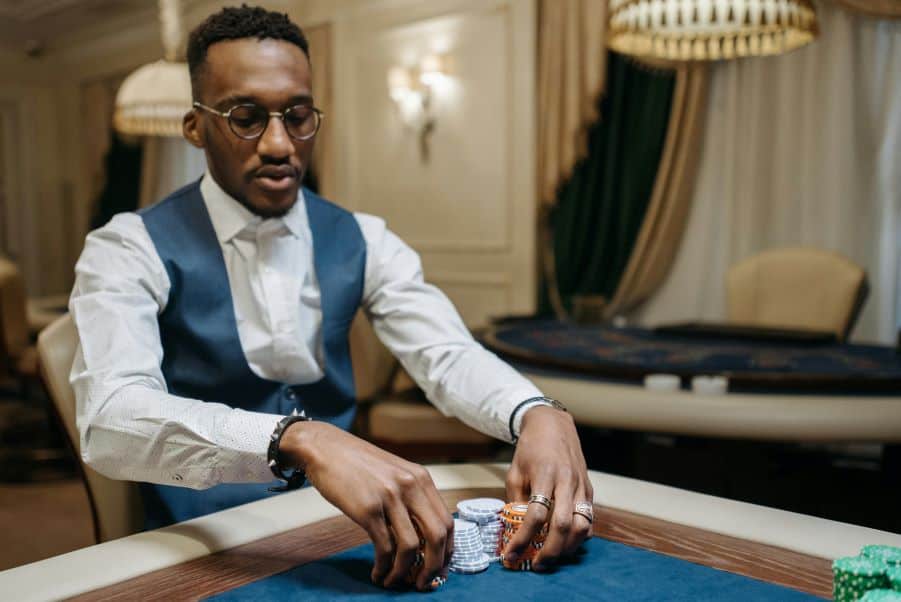In her great book, Presence, Harvard researcher Amy Cuddy discusses what is often described as Impostor syndrome. Impostor syndrome refers to when you feel like you are a fraud and you are going to be found out at any stage. She admits that she experienced it and I understand what she was talking about as I, myself, have experienced it in the past as well. It was particularly obvious for me because of what I do. When your job is to teach charisma or influence or how to become happier, it is easy to feel like a fraud. Any time I didn’t charm someone or any time I got rejected was an opportunity for me to feel like a charisma fraud. Any time I failed to influence someone successfully was a chance to feel like an influence fraud. Any time I didn’t feel happy and I felt like a happiness fraud.
Teaching such skills sets you up for it in a way. What makes it worse is that the way we market in the industry often feels like your fellow experts are perfect and always happy, charismatic with Jedi mind trick skills of influence. Having been in the industry since I was a teenager, I realise, of course, that this is not true. At the same time, I still used to feel like I was supposed to be perfect if I was preaching what I was preaching. The example I gave to myself was having a personal trainer who was overweight. How could you possibly believe in them as your trainer if they don’t take their own advice?
The reality was though that I wasn’t taking into consideration some other important factors. I wasn’t, for example, taking into consideration biological factors in a person’s body shape or the fact that fit looking people can sometimes eat unhealthy food or stop exercising as much. Being fit doesn’t guarantee that you will be good at helping others either. For example, if you are obsessive about how you look and you eat a very strict diet, that same way of thinking might not be appropriate to someone who has an entirely different perspective on fitness.
Similarly, great salespeople are not always good at helping others to sell. Great presenters are not always great at being able to help other presenters be great. Extremely happy people are not always skilled at helping others to be happy. Helping others to improve themselves is much more about how you are with them rather than simply a case of telling them what you do. The real trick to it is to be good enough, fit enough, influential enough, charismatic enough, happy enough. You do not have to be perfect. You just have to be as good as you can be. You have to work hard.
More and more of the research out there explains that talent is not nearly as important as hard work when you are mastering a skill. If you want to master anything, the key is to work on it as hard as you can. This brings me back to handling the feeling of being a fraud. Feeling this way can only really happen when your perception of who you should be is something you compare yourself to and you come up against it wanting. Self Belief is not a thing. It is a practice. Like meditation or exercise, you work at self-belief. You talk to yourself positively. You remind yourself of your greatest successes. You remember the times that you were written off and you still managed to succeed. And you fail to fall into the trap of comparing yourself to an image of how you should be.
Instead you work as hard as you can to improve and you recognise that it is not about deserving success but earning success. The subtle difference is that life does not reward you with what you deserve. It rewards you with the fruit of your labour. So, you do not feel like you deserve the success that you get rather that you continue to earn it the harder you work. You stop thinking that you are static in your position or role or in the relationship that you are in. You realise that you are ever improving and working hard to be better than you are now… even better that the ideas of what you ‘should’ be. You understand that everyone is doing their best to fit in wherever they are and that the easiest thing to do is to feel like you do not. But just like depression is a liar disguised as the truth, the feeling of being a fraud is yet another liar.
I came through this feeling and belief by accepting that I am flawed, vulnerable and far from perfect. I accepted that I was not the best in the world at anything I did… except for being me. And that was all I could do. I could work hard at being the very best me that I could possibly be. And I could be on my own side and face the challenges the world presents with my own support. You see, I cannot be found out because I have already found myself out. And that is liberating. For it is in accepting your own fallibility and allowing the world to see it that you gain the greatest power of all… the ability to conquer the fear that can tie you up in knots. You get to move forward and realise the only way to be a fraud is to lie to yourself. When you are honest about your own humanity, you become fraudless. You become impostorless. You become your own authentic hero.
Image: thanks to http://www.gratisography.com/





